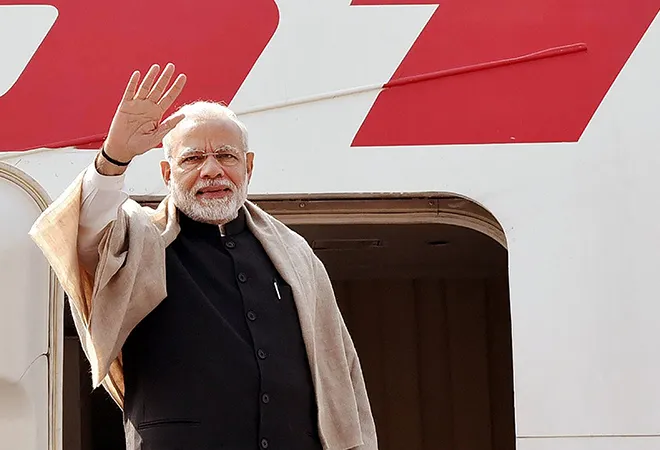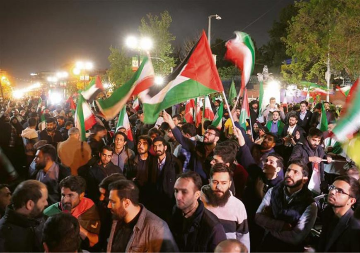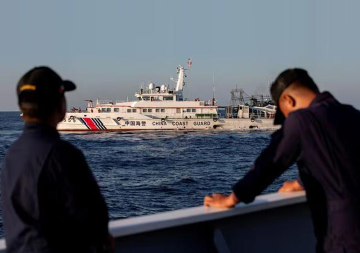Since the US-led ouster of the Taliban from Kabul, Afghanistan has continued to struggle with a precarious stage in its development towards a stable state. According to a recent report by the Special Inspector General for Afghanistan Reconstruction (SIGAR), the government of President Ashraf Ghani has lost further influence over Afghan districts to the Taliban, with the latter controlling 13 and influencing 42 out of the country’s total 407 districts. “The Afghan government’s district and population control deteriorated to its lowest level since SIGAR began analysing district-control data in December 2015 and population-control data in September 2016,” the report said.
Ahead of
US Secretary of State Rex Tillerson’s maiden visit to New Delhi last month, Ghani made a one-day working visit to India to discuss the impending security situation in his country. While both New Delhi and Kabul publicly chastise interventionism, privately the two capitals lobbied hard for an increased NATO military posture, as the Taliban gains in territory and influence. This has led to a greater urgency for the potential for some sort of political reconciliation with the Taliban, as after 16 years of war, an all-out military solution is now a seen as highly unlikely.
A
reconciliatory approach has brought to the fold people such as Gulbuddin Hekmatyar, leader of the Sunni mujahideen group Hezb-e Islami and known as the “Butcher of Kabul” for his group’s violent attacks on the capital throughout the civil war of the 1990s, who now has political ambitions. Hekmatyar’s mainstreaming into Afghan politics, which could be seen as a pilot project, has prompted debate over whether Afghan political reconciliation can be approached from an Afghan-led perspective, with a growing divergence from the interests of the Western-led powers and India, which has held reservations over the inclusion of Taliban into the daily Afghan political life.
India, officially (or at least not publicly), has yet to engage with the Taliban, either directly or via the group’s erstwhile office in Doha, Qatar. Meanwhile, other parties did meet with the Taliban via its Doha “embassy” while it was still operational, with representatives of the Taliban travelling to Norway and even China to hold talks on the future of Afghan peace processes. Even as Beijing hosted the delegation, India maintained its line of “no good terrorism or bad terrorism”; keeping away from the Taliban and concentrating on its policy of shoring up global support against Pakistan’s state-sponsored terror activities across its border and in Afghanistan as well.
New Delhi has maintained that any reconciliation process needs to be Afghan-led, Afghan-owned and Afghan controlled. However, despite its deep political and economic engagement, it is still unclear to what extent exactly India’s voice matters in the Afghan reconciliation processes, and how comfortable Delhi is dealing not just with the Taliban at an official level, but with the narratives of Washington and London as well. These latter are two prominent influences in Kabul, both pushing India for a larger economic, but primarily military role. On this, at most levels, India has been hesitant, yet under the current BJP government it has started to comply in certain areas. While some strings have been loosened by providing Afghan forces with attack Mi-25 helicopters, equipment and increased training, New Delhi does not want to find itself in a position where “Made in India” boxes of arms and ammunition are caught in the insurgent’s hands or its own troops are visible on the ground. Such a move could hamper years of work, which has successfully burnished India’s image as a development partner amongst the Afghan people, who have mainly seen foreign powers as not contributors, but oppressors and starters of wars.
Indian interests do have their share of supporters in Kabul. Ghani has had no qualms publicly vilifying Pakistan for not doing enough to reign in terror activities that Afghanistan says it actively orchestrates within the country, specifically in cohorts with the Taliban. While India is known to have active back channels with the Taliban, an official and open negotiation has implications for its domestic politics as well, where its policies towards domestic insurgency movements in regions such as Kashmir, the North East and the Maoists in the central and eastern parts of the country are diverse, with a combination of military and political strategies leading the way with mixed results. For example, official negotiations with the Taliban could raise calls for India to negotiate with terror groups in Kashmir, a non-starter in Delhi.
Nonetheless, India may not be completely averse to certain sections of the Taliban being given political mileage, with a heavy load of checks and balances to accompany. Such a fragmented approach to negotiating with the Taliban has its own challenges, and begs the question of how the Taliban leadership, known as the “Quetta Shura,” operating out of the Pakistan’s Balochistan region, responds to such overtures not just from India, but the eventual arm-twist they will receive from Pakistan’s convoluted military-jihadi complex. Within the Taliban, there is a Venn diagram of overlapping interests of military commanders on the ground to the Deobandi scholars and clerics that constitute the Shura, with various interest camps within the movement elbowing for greater clout. After the death of Taliban leader Mullah Akhtar Mansour in a US drone strike last year in Balochistan, while on his way back from a secret trip to Iran, it was
reported that Pakistan had “engineered” the hit, due to a lack of trust not just in Pakistani intelligence but within the Quetta Shura as well. Recent reports have also surfaced of infighting among Taliban commanders, with some senior figures defecting to join the latest brand of jihad in the region, ISIS Khorasan (ISKP). Even with this fragmentation, there have been instances of joint Taliban-ISKP operations against local warlords in Afghan tribal belts, highlighting the enormous complexities of what “negotiating with the Taliban” really means.
An Indian approach would lack the critical leeway required for such an intervention. A political narrative beyond Pakistan, which would be needed to cement a long-term commitment for stability in Afghanistan, is currently outside the political purview and economic or military capability of New Delhi. Without such an embedded interest in Afghanistan, which in more purer terms for the US would mean a “boots on the ground” commitment, an increased Indian narrative to help Kabul with the question of “legitimising” Taliban into Afghan politics would not be seen in a positive light by the West. Beyond this, India’s larger interests in Pakistan — namely, its hope that the US would give as much importance to terror activity there as it does to terror groups in Afghanistan — has not resonated as deeply as Delhi would have liked. The recent
US.. Congress delinking of the Pakistan-backed Lashkar-e-Taiba (LeT) from its certification program (which continues to have Pakistan backed Afghan terror groups such as the Haqqani Network) that would have required the State Department to provide proof before Islamabad could get more funds for fighting terrorism, is another stark reminder that India’s primary interests in global terror, that is Pakistan-sponsored violence in Kashmir, is not on the American priority list.
The divergence over the approaches taken to achieve the common end-goals, that of a peaceful and stable Afghanistan, between the US and India, prevents New Delhi from having a political say in Kabul beyond a certain threshold. While there is common ground between the US and India on Afghanistan, the intricacies are complex, and for now only provide an ecosystem for New Delhi and Washington to work together on containing the Taliban, rather than on an all-encompassing answer to the ever-muddled Afghan crisis.
This commentary was published in The Diplomat.
The views expressed above belong to the author(s). ORF research and analyses now available on Telegram! Click here to access our curated content — blogs, longforms and interviews.




 PREV
PREV



